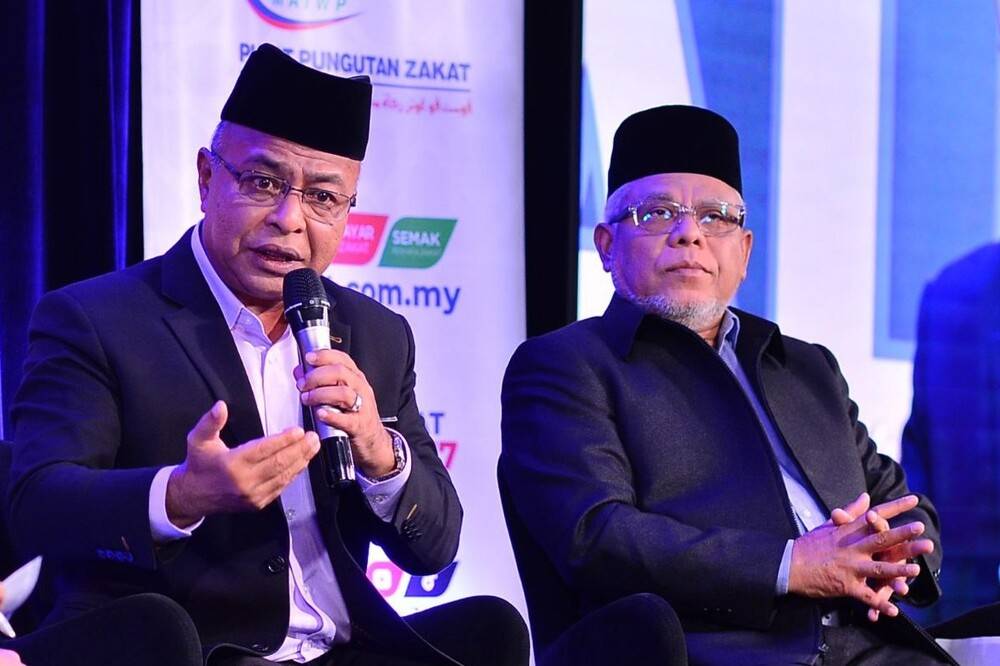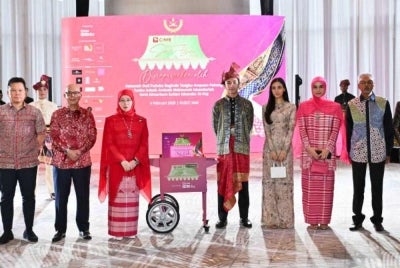MAIWP’s efforts to combat urban poverty, increase zakat collections
The rise in the cost of living in Kuala Lumpur has driven many individuals in urban settings into poverty, even in housing that was once considered middle-class.

SHAH ALAM -The Federal Territories Islamic Religious Council (MAIWP) is expanding its initiatives to tackle urban poverty, particularly in Kuala Lumpur, as part of its continued commitment to address the growing needs of the urban poor.
Its acting chief executive officer (CEO) Datuk Mohd Nizam Yahya highlighted the increasing complexity of poverty in urban settings, emphasising that poverty in Kuala Lumpur was not limited to traditional poor housing areas like the People’s Housing Programme (PPR) but was also affecting those in higher-cost living environments such as condominiums and apartments.
Nizam said the rise in the cost of living in Kuala Lumpur has driven many individuals in urban settings into poverty, even in housing that was once considered middle-class.
"Previously, people in PPRs were considered poor, while those living in condominiums or terrace houses were not. However, in Kuala Lumpur, this distinction no longer applies, as the high cost of living affects people across various housing types.
"Given this urban reality, MAIWP has expanded its assistance programmes to address the growing needs of these communities.
"Previously, MAIWP provided 38 types of aid, including rental assistance covering PPR rent, which averages around RM124.
"Recognising the plight of those unable to access PPR housing, MAIWP has significantly increased its rental assistance to RM1,000 per month, enabling these individuals to sustain their livelihoods in a high-cost urban environment," he said.
He said this during the "CEO Talk: Realiti Miskin Bandar" programme held at the Karangkraf Group Complex, here, today.
Nizam stressed that poverty cannot be tackled through financial assistance alone.
He also pointed out that the Federal Territories of Kuala Lumpur, Putrajaya and Labuan demonstrated diverse cost-of-living challenges and resident mindsets.
"For instance, residents in Labuan are often more proactive in seeking employment to escape poverty, while some in Kuala Lumpur may exhibit dependency on aid.
"MAIWP understands that poverty cannot be addressed with a one-size-fits-all solution.
Its goal is not to create wealth but to help individuals achieve a stable, sustainable life by meeting essential needs, as determined by the Had Kifayah calculation.
"This metric, updated every two to three years, establishes the minimum requirements for a family’s basic monthly needs, factoring in regional cost-of-living variations," he added.
To further empower the urban poor, MAIWP has introduced fully-funded short-term educational programmes, offering educational courses that last from three to six months.
These programmes, in collaboration with various agencies, aimed to equip participants with marketable skills, helping them secure employment with a minimum salary of RM1,700.
Meanwhile, MAIWP Zakat Collection Centre (PPZ) CEO Datuk Abdul Hakim Amir Osman said as of today, zakat collections has reached a total of RM868 million, while MAIWP has disbursed RM959 million.
This, he said has resulted in a shortfall of about RM90 million, highlighting the gap between funds collected and the actual needs of the asnaf (eligible zakat recipients).
"At PPZ, we are actively exploring strategies to increase zakat collections to better serve these communities.
"Over the past decade, zakat collections have seen significant growth, rising from RM484 million in 2013 to RM1.03 billion last year, reflecting heightened awareness among Muslims and an increase in zakat payers," he said during the programme.
While this was encouraging, Abdul Hakim emphasised that PPZ remained committed to further enhancing collections through extensive promotions across various media platforms and by offering diverse, convenient payment methods for zakat payers.
Together, these initiatives reflected MAIWP’s ongoing efforts to combat urban poverty and ensure that zakat collections were maximised to assist those who needed it most.
Download Sinar Daily application.Click Here!















